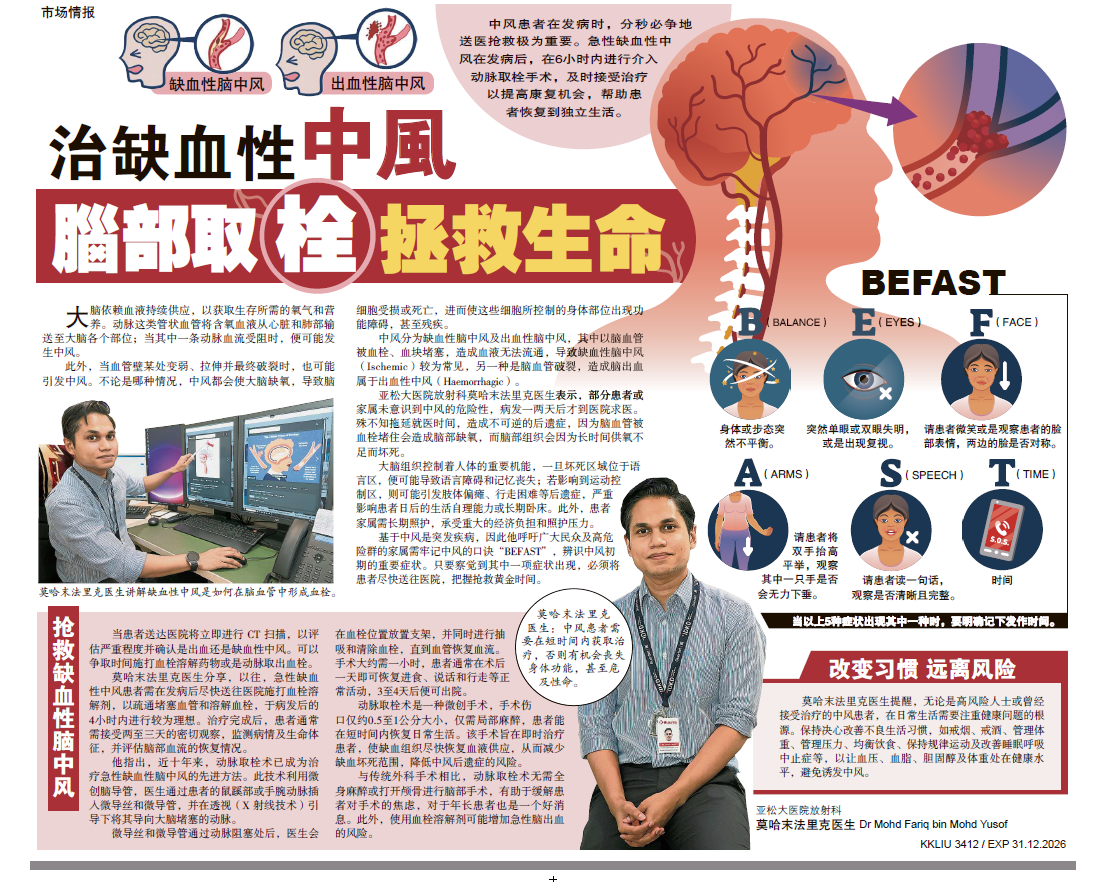I’m a 43 year old IT consultant with a regional software company. I have a couple of friends who have undergone colonoscopies and gastroscopies recently. One of them even had some polyps removed during this procedure. I would like to know whether it is advisable for me to get a scope done as well. Should I get a gastroscopy or a colonoscopy done?
Mr Chow, Petaling Jaya
—
Dear Mr Chow,
First and foremost, thank you for your question.
Nowadays, getting a scope done is becoming a routine medical procedure to rule out gastrointestinal related diseases. You do not need to have pain or discomfort in order to get yourself checked as it is the norm these days to get screened early. On the question of whether to get a gastroscopy or a colonoscopy, it is best to know what each scope is catered for.
Gastroscopy (Esophagogastroduodenoscopy or EGD) is a procedure where the upper part of your gastrointestinal tract (gut) is examined. The upper gut is made up of the oesophagus (gullet), stomach and duodenum. The doctor will use an endoscope for this procedure, thus it is sometimes also known as an endoscopy.
The endoscope is best described as a thin and flexible telescope which has a small light and a tiny video camera at the tip. During the procedure, the endoscope is gently passed through the mouth, into the oesophagus and down towards the stomach and duodenum. The patient will be given a sedative that will make you drowsy and a local anaesthetic to make the back of your throat numb.
In some cases, the doctor performing the procedure would use a thin “grabbing” tool to take a sample (biopsy) from the inside lining of the stomach. A biopsy is done to confirm or rule out the following conditions:
- Cancer of the stomach or oesophagus
- Duodenal or stomach ulcer
- Duodenitis (inflammation of the duodenum)
- Gastritis (inflammation of the stomach)
- Oesophagitis (inflammation of the oesophagus)
During the procedure, the doctor may take one or more biopsies, which depends on what is found during the scope. This is painless and the biopsy samples will be sent to the laboratory for testing. The endoscope is then gently pulled out.
The gastroscopy procedure takes less than 3 minutes and the total time, including the preparations, would take at the most half an hour. You can do your scope as an outpatient procedure and can be arranged via an appointment prior to your procedure. A gastroscopy does not usually hurt but can be a little uncomfortable, particularly when you first swallow the endoscope.
Another type of scope that is routinely done in terms of preventive healthcare is the colonoscopy. A colonoscopy is a procedure similar to gastroscopy, but in this case it is done to examine the large intestine and the colon. As it is with gastroscopy, an endeácopic instrument (colonoscope) with a tiny camera is used to perform the scope by inserting it from the anus, through the rectum and moved to the large intestine. A minimally invasive procedure, a colonoscopy is used to diagnose and treat diseases like ulcers, abnormal growths, inflamed tissues and other gastrointestinal ailments. You will be required to take laxatives orally to clean out the colon prior to the procedures.
During the scope, you may experience cramps as air will be blown into the colon, which helps the doctor to see and examine the colon clearly. If anything abnormal is detected, it would be removed for biopsy. In most cases, polyps (abnormal tissue growth) are also identified and removed. Once the procedure is completed, the colonoscope is withdrawn gently while carefully inspecting the bowel lining once more.
A colonoscopy takes around 10 minutes to complete and you may be required to rest for some time in the recovery room while the doctor monitors you post procedure. It is normal for you to experience cramping, bloating, nausea and drowsiness after your procedure but this will soon pass and you would be able to go home soon after.
Remember, doing a scope is one of the best ways to detect or rule out gastrointestinal diseases and it is recommended that you have a yearly scope done when you reach the age of 40 or even earlier if you have a family history of colon and stomach cancer.
Routine screening can help save your life!











